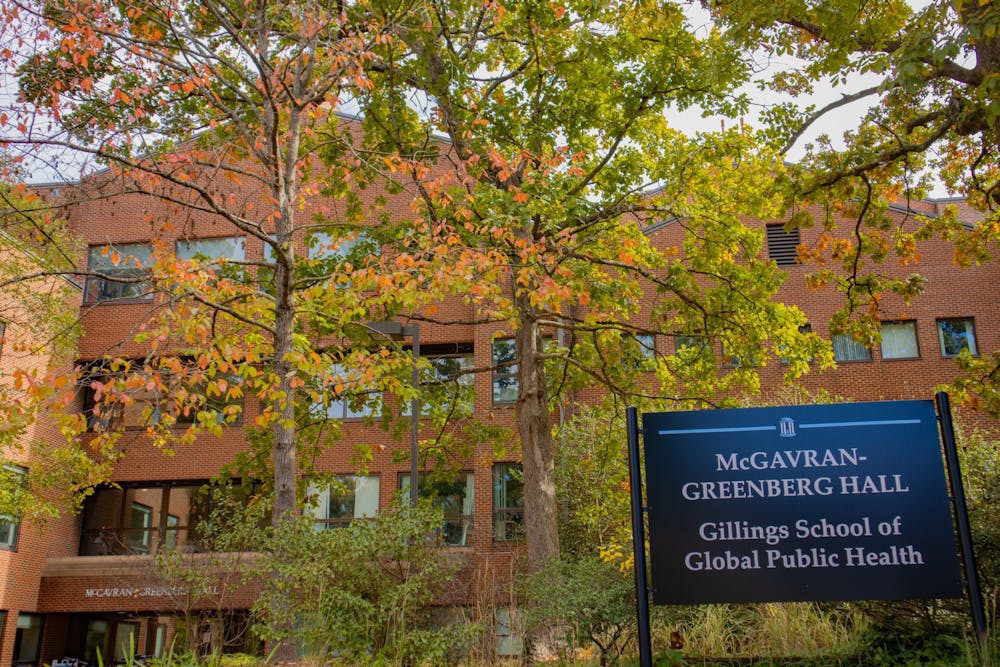From over 4,500 miles away, researchers at the Gillings School of Global Public Health are working with community members in Sierra Leone to increase safety for pregnant women and fight malnutrition.
The Humanitarian Health Initiative (HHI), an initiative within Gillings, is working with the Rural Health Care Initiative (RHCI), a non-governmental organization located in Tikonko Chiefdom, a part of Sierra Leone's Southern Province.
The RHCI was founded by Alice Karpeh, a Sierra Leone native, in 2011. The group’s goal is to help lower maternal mortality rates, or the rates of women dying during pregnancy, delivery or soon after delivery.
A woman in Sierra Leone is 100 times more likely to die due to pregnancy or childbirth than a woman in the United States, said Carol Nelson, program coordinator for RHCI's Sierra Leone programs.
The HHI and RHCI began collaborating in early 2021, after the RHCI reached out to Sheila Leatherman, a professor of global health policy and Gillings global advisor who would go on to spearhead UNC's team.
The collaboration came about as part of the RHCI's interest in evaluating its Sierra Leone program, said Doreen Alumaya, who led the nutrition evaluation program. At the time of her involvement, Alumaya was a graduate student at Gillings.
“It was a really collaborative community-oriented and community-driven project,” she said. “Just what global health needs right now, programs where we are centering the communities and we are letting the communities lead.”
The Gillings program conducted interviews with community members in Tikonko to learn more about how RHCI could better serve them, Leslie Lytle, faculty advisor for HHI, said in an email statement. Her work as a researcher focuses on interventions to promote community health.
“Our goal was to help in essentially monitoring and evaluating the health programs,” Alumaya said. “Specifically, we worked on their maternal health programs.”




